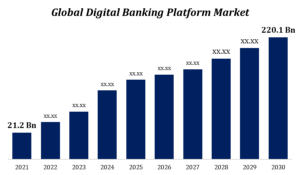Financial Literacy in the Digital Age: Empowering Individuals for Smart Money Management
In the digital age, financial literacy is more essential than ever before. As technology continues to shape the way we earn, spend, invest, and save, individuals need a strong foundation of financial knowledge to navigate the complexities of modern finance. From online banking to cryptocurrency, understanding how to manage money wisely has become a critical life skill. In this blog, we will explore the importance of financial literacy in the digital age, discuss the challenges and opportunities it presents, and provide practical tips for empowering individuals to make informed financial decisions.
The Significance of Financial Literacy in the Digital Age:
- Complex Financial Landscape: The digital age has introduced a myriad of financial products, services, and platforms. Without proper understanding, individuals may fall victim to scams or make ill-informed decisions.
- Personal Financial Responsibility: As traditional financial structures evolve, individuals have greater responsibility for their financial well-being. Being financially literate enables them to make confident choices.
- Investment and Wealth Building: Digital platforms offer opportunities for investment, such as stocks, cryptocurrencies, and crowdfunding. Financial literacy helps individuals make informed investment decisions.
Challenges and Opportunities:
- Information Overload: The internet provides a wealth of financial information, but it can also be overwhelming and sometimes misleading. Financial literacy helps individuals discern reliable sources.
- Digital Transactions: Online banking, mobile payment apps, and cryptocurrencies require an understanding of secure practices to prevent fraud and protect personal information.
- Emerging Technologies: The rise of fintech and blockchain technology introduces new financial tools. Financial literacy empowers individuals to leverage these technologies effectively.
- Debt Management: Digital lending platforms and credit cards can lead to excessive debt if not managed wisely. Financial literacy aids in responsible borrowing and debt management.
Empowering Individuals for Smart Money Management:
- Education is Key: Formal education, online courses, and workshops provide foundational financial knowledge and keep individuals updated on the latest trends.
- Budgeting and Tracking: Digital tools like budgeting apps help individuals track expenses, set financial goals, and stay within their means.
- Savings and Investment Strategy: Understanding the basics of compounding, risk, and diversification empowers individuals to make informed decisions about saving and investing.
- Critical Evaluation: Encourage critical thinking when evaluating financial products and opportunities. Being skeptical and conducting thorough research can prevent costly mistakes.
- Online Security Awareness: Educate individuals about online security practices, such as strong passwords, two-factor authentication, and recognizing phishing attempts.
In the digital age, financial literacy is an indispensable skill that empowers individuals to take control of their financial future. As technology continues to reshape the financial landscape, being financially literate enables individuals to navigate the complexities of the digital world with confidence. By understanding the principles of budgeting, saving, investing, and online security, individuals can make informed financial decisions that contribute to their overall well-being and success. As we embrace the opportunities and challenges of the digital age, cultivating financial literacy remains a cornerstone for achieving smart and responsible money management.
Top of Form


































